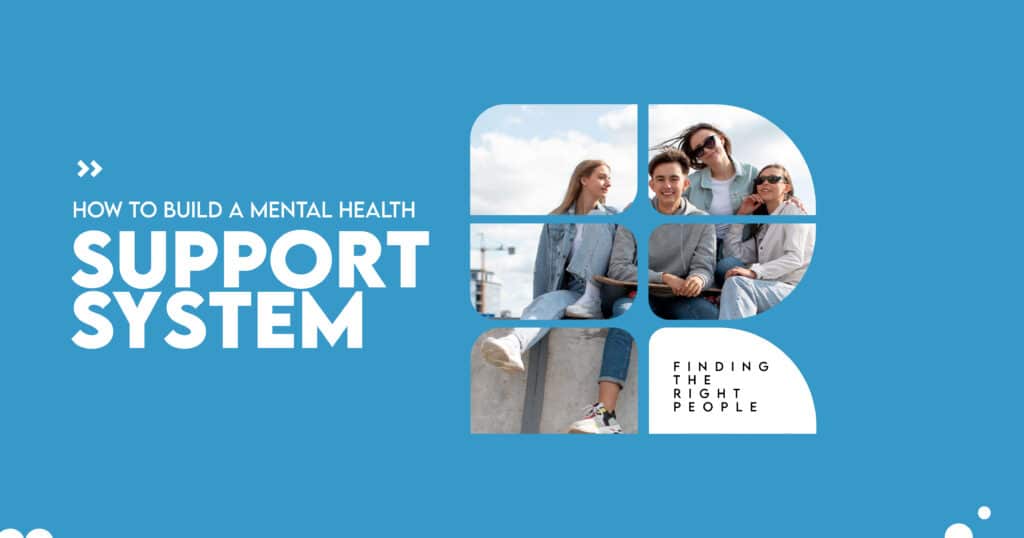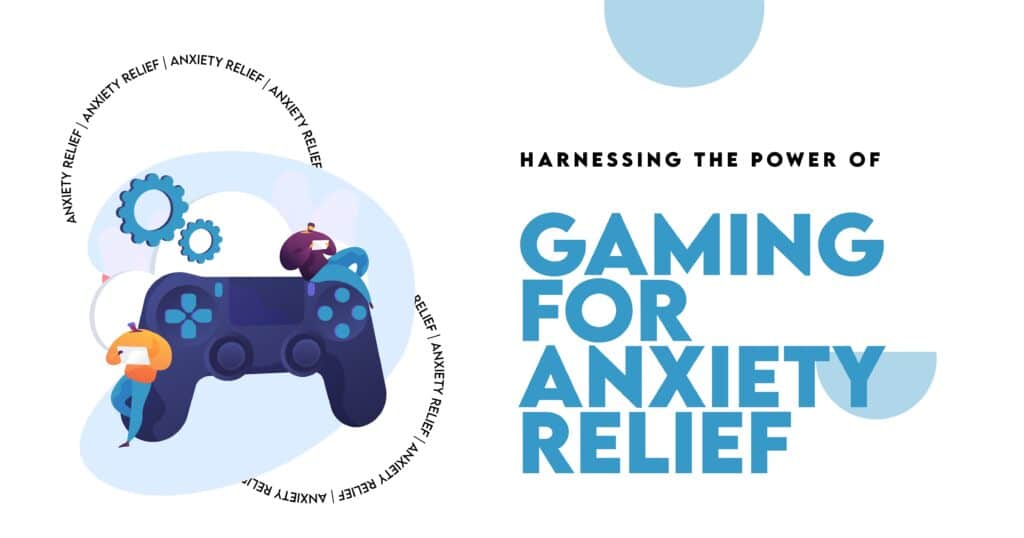When it comes to maintaining mental health, one thing is for sure: no one should have to go through it alone. Whether you’re managing stress, dealing with anxiety, or working through something more complex like depression or bipolar disorder, a strong support system can make all the difference.
Essential Takeaways
- Mental health needs support – Surround yourself with supportive individuals to better manage challenges.
- Clear communication is vital – Open dialogue and respecting boundaries are key to maintaining strong relationships.
- Support systems change – Adapt and nurture relationships that help you thrive over time.
But how do you build one? How do you find the right people to support you through your mental health journey? In this guide, we’ll explore identifying key individuals who can be part of your support system, the importance of communication, and how to maintain those vital relationships over time.
Why a Mental Health Support System is Important
You might be wondering, “Why do I need a mental health support system?” The answer is simple: having the right people around can improve your emotional well-being, help you navigate challenging times, and provide stability when life feels overwhelming.
The Benefits of Having the Right People in Your Corner
First and foremost, a mental health support system provides emotional and psychological backing. The burden feels lighter when you have people who understand what you’re going through. Friends, family, and professionals can offer reassurance, share coping strategies, and remind you that you’re not alone. Sometimes, having someone listen to you can reduce feelings of isolation and helplessness.
Having a sound support system also helps with accountability. Whether it’s sticking to therapy sessions, medication, or self-care routines, your support network can gently remind and encourage you. They can act as cheerleaders, rooting for you when you need motivation and lending a helping hand when you feel like giving up.
Mental Health is Not a Solo Journey
It’s important to remember that mental health isn’t something you have to manage by yourself. Many people feel they must “handle” their emotions and struggles alone, but that’s not true. Mental health is a community effort. By letting others in and allowing them to support you, you open yourself up to faster recovery, improved coping mechanisms, and a deeper sense of connection.
Identifying the Key People for Your Support System
Now that we know why having a support system is so important, let’s discuss who should be in that system. It’s essential to surround yourself with people who are supportive, understanding, and genuinely care about your well-being.
Friends and Family: Your First Line of Support
For most people, friends and family are the go-to sources for emotional support. These people know you best; ideally, they’re the ones you feel most comfortable being honest with. When building your support system, start with those closest to you.
That being said, only some people in your circle may be equipped to offer the kind of support you need. Some people may not fully understand mental health challenges or may unintentionally say things that aren’t helpful. It’s okay to set boundaries with these individuals while still leaning on the more understanding ones.
An excellent way to approach friends and family is to communicate your needs. Let them know how they can help, whether through active listening, offering advice, or being present when you need them. Loved ones often want to support us but don’t know how—so don’t be afraid to tell them what you need.
Mental Health Professionals: Essential Guides
While friends and family are crucial, mental health professionals are equally—if not more—influential in your support system. Therapists, counselors, and psychiatrists provide expertise and objectivity that your circle may not be able to offer.
Finding the right mental health professional can feel daunting but worthwhile. Look for someone who specializes in your specific challenges, whether that’s anxiety, depression, trauma, or another condition. Don’t hesitate to “shop around” for the right fit. A good therapist or psychiatrist is someone you feel comfortable with, listens well, and offers strategies that resonate with you.
Additionally, mental health professionals provide structure. They can guide you through healing with tools like Cognitive Behavioral Therapy (CBT), medication management, or mindfulness exercises. Their expert advice is invaluable for long-term mental wellness.
Support Groups: Finding Community with Shared Experiences
Sometimes, the best way to feel supported is to connect with others who have gone through similar experiences. Support groups can be an incredible resource for anyone facing mental health challenges. These groups, whether online or in-person, provide a space to share your story, listen to others, and gain perspective from people who truly understand what you’re going through.
Finding the right group may take some time. Some groups focus on specific conditions, like depression or anxiety, while others may be broader. Look for one that feels welcoming, where you feel comfortable sharing your experiences. Online forums and local community centers often host mental health support groups.
The sense of community that comes from these groups can be powerful. Not only do they provide emotional support, but they also remind you that you’re not alone—many others are walking a similar path.
Allies at Work or School: Professional and Academic Support
Your support system shouldn’t stop at home. Workplaces and schools can also be crucial to your mental health journey. If you’re comfortable, consider talking to a trusted supervisor, HR representative, or academic advisor about your mental health needs. They may be able to provide accommodations, like flexible work hours or deadline extensions, to help you manage your mental health without added stress.
Many workplaces and schools now have mental health resources, including Employee Assistance Programs (EAPs) and on-campus counselors. Don’t hesitate to take advantage of these services if they’re available.
How to Build and Strengthen Your Support System
Building a support system is only the first step—maintaining and strengthening it over time is just as important. Relationships need care and attention to grow and continue to offer the support you need.
Be Honest About Your Needs
One of the most critical aspects of building a support system is clarity about what you need. If you’re struggling, it can be tempting to downplay your feelings or assume that others will figure it out independently. However, people aren’t mind-readers! It’s crucial to communicate openly about how they can best support you.
For example, you might tell a friend, “I’ve been feeling anxious lately, and it would help if we could talk once a week,” or let a family member know, “I’m going through a tough time and could use a bit more patience from you right now.”
Setting Boundaries for Healthy Relationships
While it’s great to have people you can rely on, setting boundaries is equally important. Not every interaction needs to revolve around your mental health, and it’s okay to ask for space when needed.
Boundaries can also protect you from burnout—both yours and your supporters. If you feel overwhelmed by certain people or conversations, communicate kindly but clearly. Similarly, if someone in your support system is becoming overwhelmed, respect their boundaries. Healthy relationships are a two-way street.
Maintaining Ongoing Communication
A strong support system thrives on communication. Check in with your supporters regularly, even when things are going well. Keeping the lines of communication open ensures that no one feels like they’re only hearing from you in times of crisis.
Don’t be afraid to touch base with your therapist or counselor, even if you feel you’re doing fine. Therapy and mental health care don’t have to be just for the bad days—they can help you stay on track and prevent future struggles.
Handling Conflict Within Your Support Network
Conflicts will happen in any relationship, including those within your support system. Whether it’s a misunderstanding with a friend or a disagreement with a family member, handling these conflicts calmly and respectfully is key to maintaining a healthy support network.
Approach the situation with empathy, both for yourself and the other person. Acknowledge your feelings and listen to theirs. Resolving conflicts doesn’t mean you have to agree on everything, but finding common ground will strengthen the relationship in the long run.
Finding Support in Different Life Stages
As we move through life, our support needs change. Whether you’re a teenager, an adult, or a senior, building and maintaining a mental health support system looks different depending on your stage in life.
Building a Support System as a Teen or Young Adult
For teens and young adults, finding the right support can feel tricky. This is often a time when you’re navigating new experiences, emotions, and responsibilities. Friends and school counselors can be key to your support system but don’t overlook the value of talking to trusted adults, like teachers or family members.
Many young adults benefit from peer support groups, which offer a chance to connect with others facing similar challenges. Universities and colleges often have mental health resources, including counselors and support groups, that can be incredibly helpful during this transitional stage.
Creating a Support System as an Adult
Adulthood comes with its own set of challenges. It can be easy to feel overwhelmed between careers, relationships, and family responsibilities. As an adult, you might find that your support system is a mix of personal and professional relationships.
Friends, family, and romantic partners play an essential role, but don’t forget about the importance of workplace support. HR departments and Employee Assistance Programs can offer resources for managing mental health in the workplace, from counseling sessions to flexible schedules.
Mental Health Support in Later Life
As we get older, maintaining a support system becomes even more crucial. Many seniors face isolation due to retirement, the loss of loved ones, or physical limitations. But aging doesn’t mean giving up on your mental health—it’s just as important, if not more so.
For older adults, community centers, faith groups, and senior organizations can offer valuable emotional and social support. Many seniors also benefit from professional mental health services, whether through therapy or support groups tailored to their specific needs.
Conclusion: Building Your Personalized Support Network
A mental health support system is one of the most essential tools for maintaining emotional and psychological well-being. By surrounding yourself with the right people—friends, family, professionals, or peers—you’re better equipped to handle life’s challenges.
Remember, your support system is unique to you. There’s no “right” way to build it, and it will likely evolve. The key is being honest about your needs, communicating openly, and fostering relationships that lift you up.
So, who’s in your corner? Take the time to identify and nurture the people who can help you thrive mentally and emotionally.
FAQs
- Why is a support system important for mental health?
It provides emotional support, reduces isolation, and helps manage stress and challenges. - Who should be in my support system?
Trusted friends, family, mental health professionals, and support groups offer different types of support. - How do I know if someone is the right fit?
Choose people you feel comfortable with who listen, respect your boundaries, and show genuine concern. - What if a relationship becomes toxic?
Set boundaries, communicate your needs, or distance yourself if necessary for your well-being. - How do I strengthen my support system?
Maintain regular communication, set clear boundaries, and show appreciation for their support.








